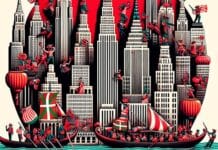Our regular readers will remember EurekAlert!, a non-profit news distribution platform created in 1996 and operated by the American Association for the Advancement of Science (AAAS) in order to serve as a resource for journalists and the general public.
They’re back today on the blog thanks to a report we found interesting, important, and worrying, about Idiazabal cheese.
And that news came from Lactiker—Quality and Safety in Foods of Animal Origin, a multidisciplinary research group at the University of the Basque Country (UPV). Since their creation in 1989, they’ve have been working at characterizing the processes involved in the manufacturing of cheese that directly influence their technological, nutritional, and sensorial quality, as well as their safety. Its goal is to provide the production sector with the information necessary to obtain a high-quality and safe product in all production conditions.
The goal of one of its lines of research is to assess the sustainability of food production systems, especially those based on grazing, which in turn depends on economic and environmental factors, the quality and safety of the food, and social and cultural issues, among others.
They’re looking to see if, in the medium and long term, these systems and sustainable in this globalized world we live in. The’re convinced that as long as they’re sustainable, these small dairy farms can and must defend their livelihoods. They believe it is very important to send this message to the general public.
They’re working with the aim of supporting the small farmers who keep and tend their own flocks, such as with the Latxa breed of sheep. Among the many problems this traditional business has come up against, one of the most important, which can be found in many different parts of Europe and the Mediterranean, is that gradual deterioration of the different grazing systems.
Luis Javier R. Barrón, the lead researcher at the Lactiker group, explains:
“Si empezamos a utilizar leche que no provenga del pastoreo de ovejas, entonces el queso Idiazabal dejará de tener las características y propiedades que tiene en este momento, y poco a poco perderemos los beneficios que aporta el sistema de pastoreo en términos de medio ambiente, biodiversidad, cultura y desarrollo rural”.
“If we start to use milk that doesn’t come from sheep that graze, then Idiazabal cheese will stop having the characteristics and properties it has now, and little by little, we’ll lose the benefits that this system of grazing provides in terms of the environment, biodiversity, culture, and rural development.”
This is a problem with many variables, but one of them is without a doubt the fact that we Basque consumers must consume local products, such as Idiazabal cheese. If we don’t, it’s quite possible we’ll end up regretting it, a lot.
EurekAlert! – 28/1/2021 – USA
The decline in grazing practices threatens the existence of a Basque cheese
The Lactiker research group at the University of the Basque Country (UPV/EHU) is working from a range of different perspectives to improve the yield of Idiazabal cheese and the technologies used in its production
(Follow) (Automatic translation)
Last Updated on Jan 30, 2021 by About Basque Country





